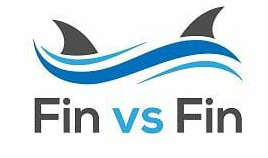- Rapid or excessive weight gain can affect hair health.
- Inadequate nutrition during weight gain or fasting can lead to nutrient deficiencies that harm the hair.
- Hormonal imbalances resulting from weight gain may impact hair growth.
- Fasting can cause physical stress and elevate cortisol levels, which can negatively affect hair growth.
Both weight gain and fasting can have an impact on your hair health, although the specific effects can vary depending on individual factors.
When it comes to weight gain, rapid or excessive increases in body weight can lead to changes in nutrition and metabolism. If you’re not maintaining a balanced diet during this process, it’s possible to miss out on essential nutrients that your hair needs, including vitamins, minerals, and proteins, potentially leading to hair problems. Additionally, hormonal fluctuations may occur during weight gain, particularly in cases of obesity and hypothyroidism (underactive thyroid). These imbalances can affect hair growth and quality, and, in some cases, lead to hair loss.
Fasting, especially if done for extended periods or with severe calorie restriction, can lead to nutrient deficiencies that are crucial for hair health. A lack of key vitamins and minerals, such as biotin, folate, vitamin B12, and riboflavin, can hinder hair growth and result in thinning or hair loss. Fasting can also cause physical stress on the body, which can elevate cortisol levels, a stress hormone that, when chronically high, can negatively affect hair growth and contribute to hair loss.
In this article, we’ll discuss how weight changes can impact the health of your hair. In addition, we spoke with Dr. Jonathan Rick, a board-certified dermatologist, about what steps you can take to improve your hair health.
It’s important to note that the impact of weight gain and fasting on hair health can vary from person to person. Some individuals may experience noticeable changes in their hair, while others may not. If you’re concerned about the impact of weight gain or fasting on your hair, speak with your healthcare provider for further guidance.

Does Obesity Cause Hair Loss?
The relationship between obesity and hair loss is complex and can vary from person to person. Obesity itself may not directly cause hair loss, but it can contribute to conditions or factors that lead to hair problems, including hormonal imbalances and nutritional deficiencies.
If you’re experiencing hair loss and are concerned about its potential causes, speak with your healthcare provider about appropriate next steps.
Hormonal Imbalances and Hair Loss
Hormonal imbalances can significantly affect hair health and may contribute to hair loss. Polycystic ovary syndrome (PCOS), often associated with obesity, involves imbalances in sex hormones, particularly elevated levels of testosterone, which can lead to hair problems like hirsutism and hair thinning.
Moreover, excess abdominal fat, known as visceral fat, can disrupt hormonal balance and influence hair health. This can lead to conditions like insulin resistance and hormonal imbalances associated with PCOS, potentially causing hair issues such as androgenetic alopecia. The hormones leptin and adiponectin, produced by fat cells, can also be imbalanced in obesity, indirectly affecting hair health.
Obesity can also disrupt the balance of thyroxine hormone, or the thyroid’s main hormone, resulting in hair thinning and loss.
Managing obesity through weight loss and lifestyle changes is crucial for restoring hormonal balance and promoting healthier hair. It’s best to speak with your healthcare provider about hormone-related hair concerns, so they can tailor treatment to your specific needs.
Related reading: How to Test for PCOS- What’s the Most Accurate PCOS Test Online?
Nutritional Deficiencies and Hair Health
Nutrition and metabolism play a crucial role in maintaining healthy hair. Essential vitamins, minerals, and nutrients are vital for proper hair growth and overall hair quality. Obesity can disrupt the body’s homeostasis of these key nutrients, particularly iron and vitamin B12, both of which are essential for healthy hair.
This disruption can result from dietary choices and absorption issues related to obesity. Iron is important for transporting oxygen to hair follicles, while vitamin B12 supports the production of healthy hair cells. Nutritional deficiencies in these areas can lead to hair thinning, increased hair loss, and reduced hair quality.
Ensuring a well-balanced diet and addressing any nutritional deficiencies is essential for promoting optimal hair health, regardless of weight or obesity-related factors.
Related reading: Nurish Vitamins Review- Are They Worth It?
Can Shedding Pounds Help or Hurt Your Hair?
Gradual and balanced weight loss through a well-rounded diet and healthy lifestyle choices is less likely to negatively impact your hair. On the other hand, rapid or extreme weight loss, especially through crash diets or unhealthy practices, can lead to hair problems due to nutrient deficiencies, increased stress levels, and other factors.
If you’re concerned about how weight loss is affecting your hair, consult with your healthcare provider for guidance and appropriate interventions to support hair health during the weight loss process.
Does Losing Weight Help With Hair Growth?
Losing weight can potentially aid hair growth for some individuals. A balanced and nutritious weight loss approach can lead to improved nutrient intake, reduced inflammation, and better hormonal balance, all of which can positively impact hair health. Additionally, stress reduction can be beneficial in supporting both the weight loss process and overall hair health.
However, the impact of weight loss on hair growth varies, and rapid or extreme weight loss through unhealthy means can lead to nutrient deficiencies and stress, potentially negatively affecting hair health.
Related reading: Zealthy Weight Loss Review- Is It Legit for Ozempic and Wegovy?
Does Intermittent Fasting Cause Thinning Hair?
Intermittent fasting, when done in a balanced and healthy manner under medical supervision, typically does not cause thinning hair. In fact, intermittent fasting can offer certain potential benefits for overall health and might indirectly support hair health.
When intermittent fasting is conducted responsibly, it can lead to improved metabolic functions, reduced inflammation, and potential weight management, all of which can positively influence hair health. However, the impact of intermittent fasting on hair and overall health can vary from person to person and it’s important to speak with your healthcare provider before trying intermittent fasting to ensure it is safe for you to do so.
Preventing hair loss while fasting, especially during intermittent fasting or other forms of calorie restriction, involves maintaining a balanced and nutrient-rich diet and managing your fasting regimen responsibly, under the supervision of your medical provider.
Other Factors That Contribute to Hair Loss
There is a complex interplay between inflammation, fatigue, and hair loss. Chronic inflammation is associated with fatigue and may contribute to both systemic and hair-related health issues.
Additionally, feeling fatigued and experiencing high stress levels can exacerbate hair loss, making it essential to address these factors in a holistic way to promote overall health.
Related reading: Does High Blood Pressure Cause Hair Loss?

Inflammation and Hair Loss
Inflammation is closely linked to various forms of hair loss. It plays a significant role in autoimmune conditions like alopecia areata, where the immune system targets and attacks hair follicles, resulting in hair loss.
Additionally, inflammation can trigger temporary hair shedding in conditions such as telogen effluvium, where hair follicles prematurely enter the resting phase in response to inflammation. Inflammatory scalp conditions like psoriasis and seborrheic dermatitis can also lead to or worsen hair loss.
Furthermore, chronic low-grade inflammation throughout the body, often associated with conditions like obesity and insulin resistance, can negatively impact the hair growth cycle, potentially causing hair thinning or hair loss.
To address inflammation-related hair loss, it’s essential to treat the underlying causes of inflammation, often under the guidance of your healthcare professional or dermatologist.
Related reading: Can Vaping Cause Hair Loss?
Hair Loss Treatment
Hair loss treatments aim to address the underlying causes and promote hair regrowth. Treatment options vary depending on the type and severity of hair loss.
For androgenetic alopecia (male and female pattern hair loss), treatments may include topical minoxidil, oral finasteride, low-level laser therapy, and hair transplantation.
Alopecia areata, an autoimmune condition, may be managed with corticosteroids, topical immunotherapy, or medications that suppress the immune response.
Telogen effluvium, often triggered by stress or illness, typically requires identifying and addressing the underlying stressor or improving overall health. Nutritional deficiencies can be addressed through dietary changes or supplementation. Lifestyle modifications, including stress reduction and a well-balanced diet, play a significant role in promoting healthy hair.
To address hair loss associated with hormonal imbalances, seeking medical advice is crucial. Healthcare professionals can conduct tests, such as a thyroid panel, hormone level tests, ferritin level tests, and more to assess hormone levels and recommend suitable treatment options. These may include lifestyle changes, dietary improvements, hormone therapy, or other medical interventions.

A Word From Our Expert
— Dr. Jonathan Rick
Like all treatments, hair regrowth approaches require knowledge of costs and benefits. Thankfully most treatments are very safe, but we still need to strike an acceptable balance between financial cost and known clinical efficacy. I usually start with topical minoxidil and then escalate to topical finasteride if needed. Both of these have well-documented improvements for most patients and are affordable.
I then discuss Nutrafol or similar products in addition to minoxidil and finasteride. For people that have reduced hair density, but not complete loss of hair, I will bring up platelet-rich plasma (PRP), but this represents a significant escalation of cost. Once we have stopped hair loss, we have the option of pursuing a hair transplant. These are significant surgical procedures with significant out-of-pocket costs. However, if the hair continues to thin around the transplanted follicles, this makes the grafting obvious and results in an unacceptable cosmetic result.
Like all things in medicine, there is not a "one size fits all" approach to hair loss and a thorough evaluation is needed for some cases. Keep in mind that not all hair loss is androgenic (female or male pattern), there can be other inflammatory conditions of the scalp that need a full workup.”
Consulting with your dermatologist or healthcare professional can help determine the most appropriate treatment plan.
Related reading: Finasteride vs. Dutasteride- Which Is Best for Hair Loss?
How to Thicken Hair After Weight Changes
To thicken hair after weight changes, focus on a holistic approach that includes a balanced diet rich in essential nutrients like protein, iron, and vitamins. Gradual and sustainable weight management can help restore hormonal balance and overall well-being, supporting healthier hair growth.
Additionally, consider stress reduction techniques to manage any emotional stress associated with weight changes, as stress can contribute to hair problems. Hair care practices, such as using gentle, sulfate-free shampoos and avoiding excessive heat styling, can also help maintain and protect existing hair. Consult with your healthcare professional or dermatologist for personalized hair growth medications or treatments that will work best for your needs.
Summary
Both weight gain and fasting can impact hair health, although the effects vary. Rapid weight gain may result in nutritional imbalances and hormonal fluctuations that can affect hair quality and lead to hair loss. Fasting, especially with severe calorie restriction, can cause nutrient deficiencies essential for hair health and raise cortisol levels, negatively impacting hair growth and potentially causing hair problems. Maintaining a balanced diet and a healthy lifestyle is key to promoting healthier hair in both scenarios.
Frequently Asked Questions (FAQs)
Does belly fat cause hair loss?
Belly fat, specifically visceral fat (fat stored around the abdominal organs), can indirectly influence hair health and potentially contribute to hair loss.
What hormone causes hair loss and weight gain?
Insulin and androgens, like testosterone, are key hormones that can be associated with both hair loss and weight gain. Elevated insulin levels due to insulin resistance, often seen in obesity, can lead to weight gain and hormonal imbalances affecting hair health. Elevated androgen levels, especially in conditions like PCOS, can result in hair problems and influence fat distribution in the body.
Will hair loss from weight gain grow back?
Hair loss related to weight gain may or may not grow back, depending on several factors. If the hair loss is due to nutritional deficiencies, hormonal imbalances, or stress associated with weight gain, addressing the underlying causes can help promote hair regrowth. However, if there is extensive hair follicle damage or scarring, the regrowth may be limited.
Does not eating cause hair thinning?
Not eating or severe calorie restriction, as seen in extreme forms of fasting or crash diets, can potentially lead to hair thinning and hair loss.
Unsure where to start?
See which treatments our medical advisors recommend for weight loss, and get exclusive discounts in your inbox!















